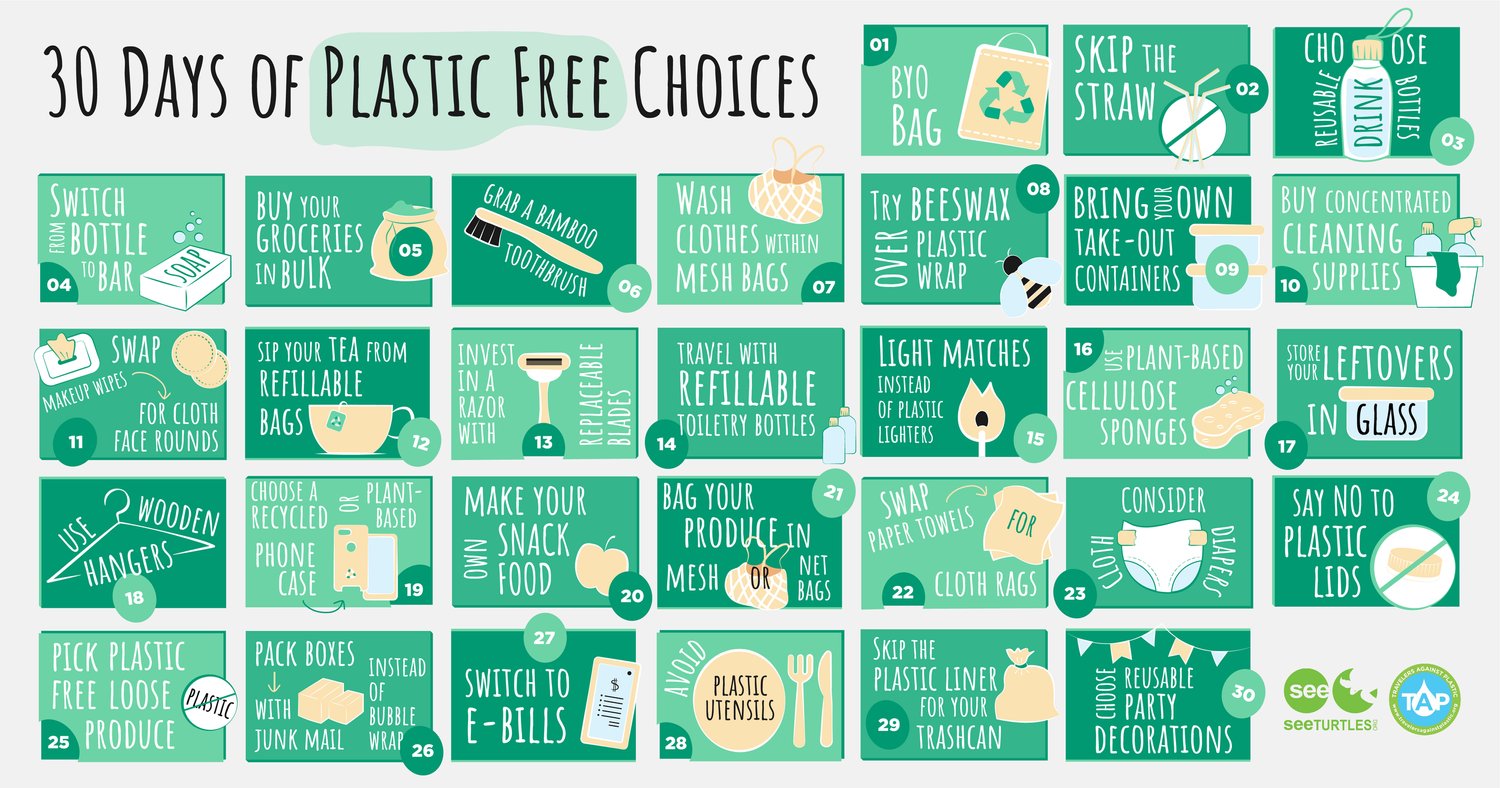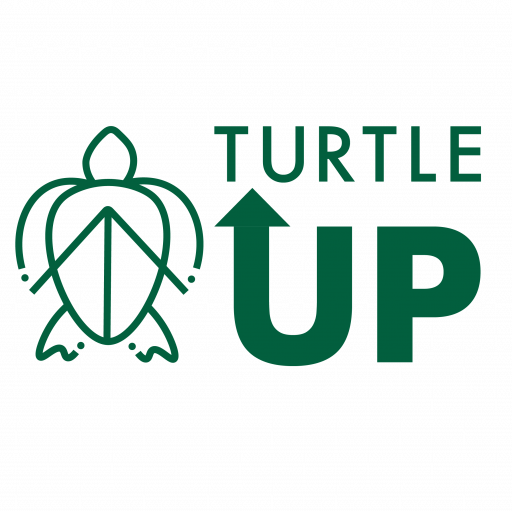Reduce/Remove Plastics
Did you know that 19 million pounds of plastic enter the ocean every year?
There are alternative products and day-to-day choices YOU can make at home to reduce the plastics that end up in our oceans and in sea turtles. Below are some tips to help you learn more about the dangers of some products you might use…
- Plastic that is clear or light-colored is more likely to be recycled than dark plastic. Darker plastics have low resale value for recycling facilities
- Mixed-material packaging made of layers of plastic, cardboard, and aluminum foil is difficult to separate. Many recycling facilities will not accept it.
- Straws, utensils, and bottle caps can slip through sorting machines and be lost to landfills. Try purchasing bamboo straws and utensils and keep them in your car for repeated use.
- Plastic bags made of LDPE usually cannot be recycled. The bags can damage sorting machines and printed logos prevent the plastic from being recycled into clear film. Carry your own bags for repeated use when shopping.

Take The 30 Day Plastic Challenge
Help us reduce plastic in sea turtle habitats. You may not live near a beach where turtles nest, or even near an ocean where turtles spend much of their lives. But we live on the same planet, so you’re discarded plastic could end up in a sea turtles’ mouth across the world! Make a difference today by taking the 30-day plastics challenge!

